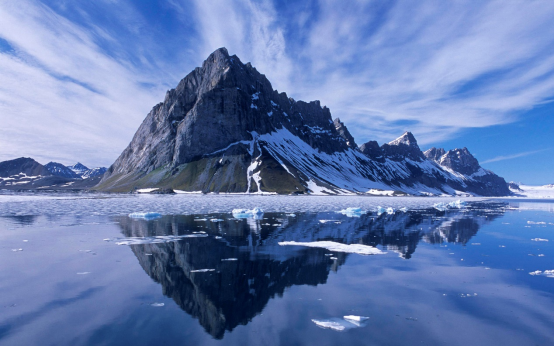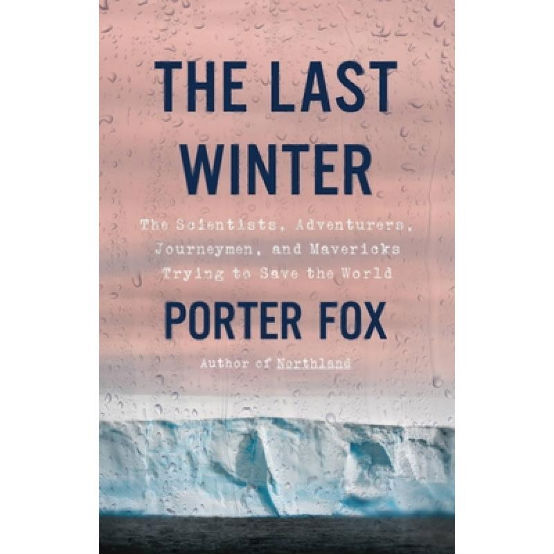Sourse:Scientific American November 2021
(The far-reaching effects of shrinking winters)

With each new report about the impend-ing-and ongoing--effects of climatechange, it's easy to catastrophize. In thecoming decades, as glaciers around theplanet melt and sea levels rise, hundredsof millions of people living in low-lyingcoastal communities will be forced to relo-cate to higher ground.But the mountainsare no safe space either, as wildfires increaseand water becomes scarce-both of whichare a result of disappearing snowfall.“Frozenwater has made our world," writes authorPorter Fox.“And as it vanishes,everything inour backyards,our cities, our homes,ourjobs,and our lives is going to change."
For the 670 million people living in highmountain regions worldwide,the shrink-ing glaciers (as well as the rivers they feed)will leave those once snowy areas withoutwater,parched to the point of geologicdehydration.Within the next threedecades the length of winter in the U.S.could decline by 50 percent. A 2004 studyin Climatic Change predicted a drop insnowpack depth of 25 to 100 percent bythe end of this century; another studywarns that the Southwest will not haveenough snow to support ski operations by2050.Such dramatic losses will devastatethe West's forests and dry up rivers like themighty Colorado,which supplies waterto some 40 million people and has beenin drought for more than 20 years. Indeed,the first-ever water-usage cutbacks wereapplied to its basin states in August.

《The last winter》The book is part adventure travelogue,part profile collection and part essay, as Fox,a lifetime skier,contemplates what theworld will be like without snow.Because ofthis mash-up,The Last Winter can feel a bitdisjointed at times, and it's occasionally hardto keep tabs on who's who, as Fox leapsfrom one person to another and from loca-tion to location. (It doesn't help that the pan-demic interrupted the book's far-flungreporting.) But when he settles into a newcharacter and destination, Fox does anexcellent job of humanizing the scientists.InWashington,he goes on a backcountry skitour with Kelly Gleason,a researcher atPortland State University who helped pio-neer the study of a particular feedback loop:when black carbon from burned trees fallsonto snow,it absorbs more sunlight,causingthe snow to melt faster and dry out the for-est earlier,creating more fire-prone forest.The idea had come to her while skiing in aburn scar.When Fox asks Gleason what willlife be without winter,she responds:“Yeah,I'm not ready to deal with that.”
The writing is at its best when Foxdescribes the landscapes. In the Arctic,forexample,“It never really gets dark....Thereflective surface of the snow and glaciersglows blue under the moon and stars.Night is an afterworld of ghostly shapesand distant sounds, like opening your eyesunderwater." He meditates on what thefading of winter will mean for the culturesthat rely on it-both the ancient nativecultures and modern recreational oneslike skiing.In Greenland,Fox embeds witha crew of Inuit guides who seem more pre-pared to confront the harsh realities of cli-mate change than most.
Still, it's the research on the ongoinglosses in the cryosphere that provide thebook's heft,if only because of the dire stateit portrays.As Fox notes when discussingthe multiplying effects of droughts,forestfires, diminished snowpack and longersummers:“As with most in the world ofcli-mate change,the problem compounds.Lack of snow cover allows sunlight to sus-tain new plant life earlier in the spring-adding more demand on the shrinkingwater supply and more fuel for fires."
If there are faults to 《The Last Winter》,it's that the book suffers from the sameshortcomings as much reporting on cli-mate change:it's too focused on the canar-ies in the coal mine.The rapid pace atwhich we've already lost glaciers and biodi-versity (to name just two examples)haven'tyet propelled our species to take upaggressive action.Fox writes withsinceritythat "measurementis the key to solving cli-mate change," but it's a wide-eyed view.lt'swhat we do collectively with those datathat matters most now,and the book ofersfew nods toward the type of transformativesolutions we need.
Coming away from reading 《The Last Winter》,there's no other way to fel but,well.full of dread.As Foxnotes,"The sedatingeffects of modern convenience [make] itsem like everything lis] going to be alrighl,like someone would figure everything out."
Ryan Krogh